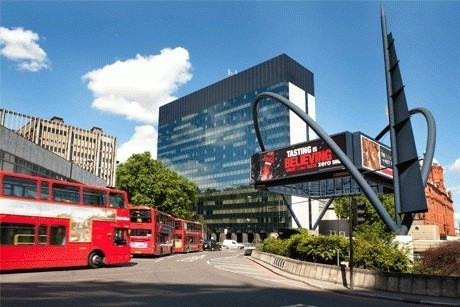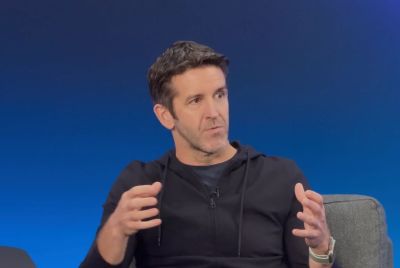Tech City Can Manage without a Google, Claims Startup CEO William Webb
Tech City doesn't need to grow the next Google or focus on creating London's next £1bn company, says startup CEO and former Ofcom director William Webb.

Speaking to IBTimes UK, Webb, who is CEO of Weightless SIG, said that chasing headlines about creating the next Google or Facebook in London could be dangerous for the capital's Tech City Investment Organisation, formerly known as Silicon Roundabout.
"The problem we have in the UK is that we see [selling startups before they become huge] as a bad thing, we think gosh a startup has been acquired by a US company and we say yet again we fail to grow a Google, we fail to grow a Cisco and all the strength is moving out to the US.'
"Yes, in an ideal world we'd grow the company indigenously like the way Google grew, or we'd have an acquisition from a big UK company, but we have to be realistic - we're not in that world."
Despite regular media coverage, royal visits and a Google presence, Tech City has yet to produce a £1bn technology company to take on those created in the US and Silicon Valley, but Webb argued that that was not a goal the government should set itself.
Webb said the differences between US and UK tech startups stemmed from culture.
"By and large the culture in the UK is that most people think: 'A couple of million, that sounds pretty good to me, take that now rather than hang on for the multibillions'. Whereas in the US there appears to be much more a culture of really wanting to make it big - there is a difference there."
Pathetic attitude
This attitude of wanting to cash-in at a comfortable stage rather than stick with a successful startup and see where it could go was lambasted recently by equity expert Edmund Truell, who said it was holding the economy back.
Truell said: "There's this pathetic attitude to risk and reward which really disappoints me as an investor."
But even if Tech City were to take Truell's advice and produce a huge British company, Webb still does not see it as the primary goal of London's startup hub.
"I'm sure the government would love to see a few big success stories that they could trumpet and say 'oh isn't this fantastic' and ministers could go and visit and cut ribbons and do all those lovely things - but actually I don't think any of that is needed to fulfill the fundamental goals of driving innovation and high tech jobs," he said.
Webb says the businesses should stop focusing on creating Google and Facebook rivals and instead embrace a culture of smaller companies being bought by larger ones. He cited Android as an example of a startup that was acquired by Google and has gone on to achieve greatness.
"I don't think we should go out of our way to make [a British £1bn company] happen. It could be a very dangerous activity to undertake. It's actually very healthy to have lots of smaller companies that are acquired by others. It's a form of inward investment which the government is keen to encourage.
"Are there lots of ideas being generated, lots of innovation, lots of jobs being created even if they're all in small companies, not in one company but in hundreds and hundreds of companies?
"[ We should be asking] are we seeing the kind of high-tech, high-value jobs that the government wants to create? Not have we grown a Google? Have we grown an Apple?"
© Copyright IBTimes 2025. All rights reserved.





















